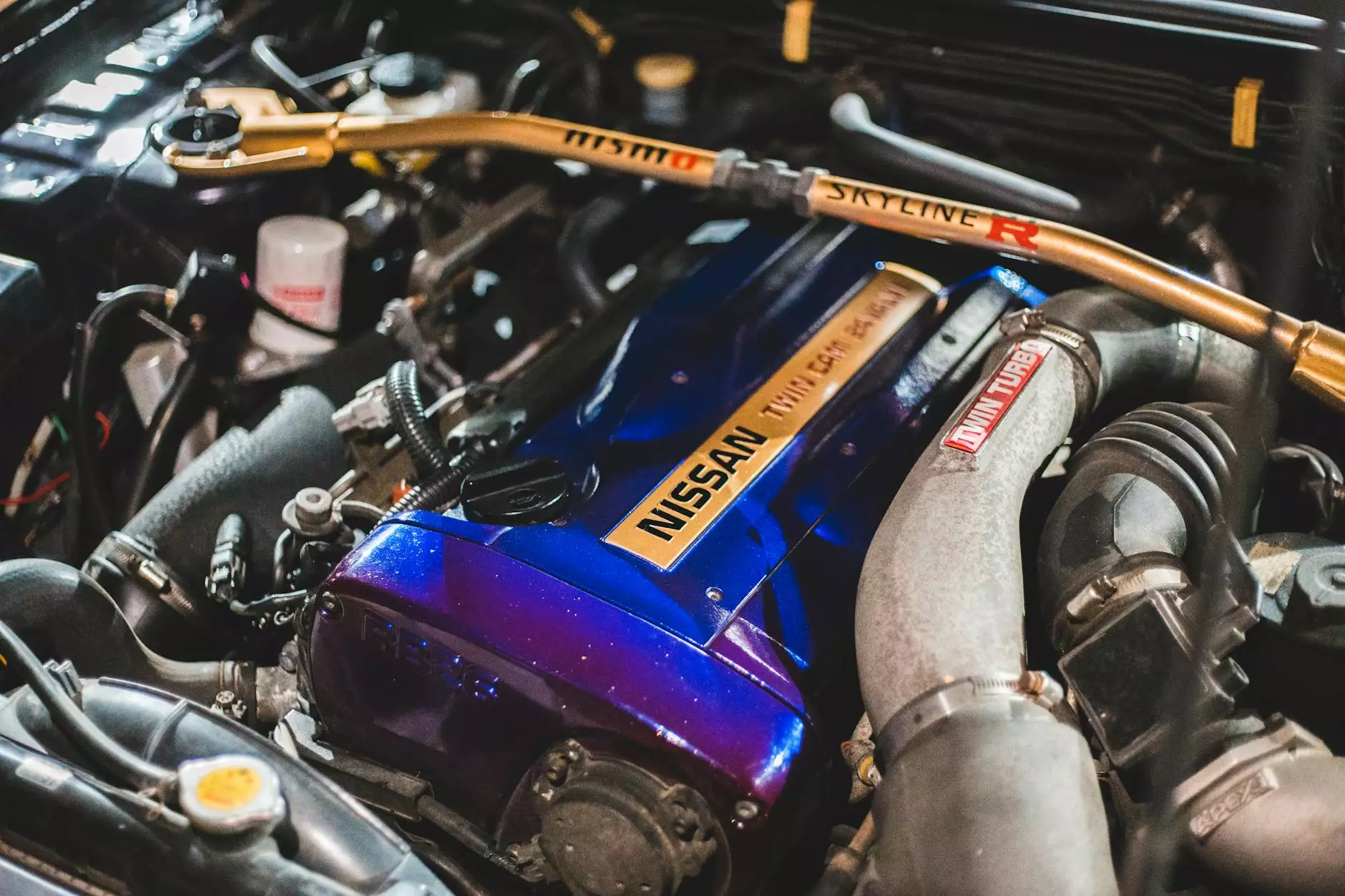Understanding the Parts of the Cylinder Head: Enhancing Your Diesel Engine Performance

In the world of diesel engines, the parts of the cylinder head play a critical role in engine performance, efficiency, and longevity. In this comprehensive article, we will delve into the various components of the cylinder head, their functions, and how they contribute to the overall operation of a diesel engine. Whether you are an experienced mechanic or a diesel engine owner looking to enhance your knowledge, this article aims to provide valuable insights that can help you make informed decisions.
What is the Cylinder Head?
The cylinder head is a vital component of an engine, typically located at the upper part of the engine block. It seals the combustion chamber, allowing for efficient sealing during the combustion process. The cylinder head houses several critical elements that work together to ensure optimal performance.
Key Components of the Cylinder Head
Understanding the parts of the cylinder head is essential for anyone interested in diesel engine mechanics. Below are the key components:
- Valves
- Valve Springs
- Valve Seats
- Cylinder Head Gasket
- Injector Ports
- Combustion Chambers
- Camshaft
- Cooling Passages
1. Valves
Valves play a crucial role in the operation of the cylinder head. There are typically two types of valves in a diesel engine:
- Intake Valves: These valves allow the air-fuel mixture to enter the combustion chamber.
- Exhaust Valves: After combustion, these valves enable the exhaust gases to exit the chamber.
The precise operation of these valves is essential for the engine's performance, making their quality and maintenance a top priority for any diesel engine owner.
2. Valve Springs
Valve springs are vital for returning the valves to their closed position after they have been opened. The strength and durability of these springs are crucial, as they directly influence the valve operation's reliability and timing. A failure in the valve springs can lead to serious engine problems.
3. Valve Seats
Valve seats are the surfaces where the valves make contact when they are closed. These components must be precisely machined for proper sealing and to withstand the extreme temperatures and pressures of combustion. The durability of valve seats is essential in preventing leaks and ensuring efficient engine operation.
4. Cylinder Head Gasket
The cylinder head gasket is a critical seal that prevents coolant and engine oil from mixing with the combustion chamber. It also seals the combustion gases within the cylinder. A compromised gasket can lead to significant engine issues, such as overheating and loss of power, making timely replacement essential during maintenance.
5. Injector Ports
Injector ports are designed to accommodate fuel injectors, which deliver the correct amount of fuel into the combustion chamber at precisely the right time. The positioning and condition of these ports can dramatically affect the efficiency and power output of a diesel engine.
6. Combustion Chambers
The combustion chamber is where the magic happens. It is designed to facilitate optimal air-fuel mixing and combustion. The shape and size of the combustion chamber in the cylinder head significantly influence the engine's power and efficiency, highlighting the importance of careful design and maintenance of this component.
7. Camshaft
The camshaft is responsible for operating the valves. It converts the rotational motion of the engine into the linear motion needed to open and close the valves. The camshaft's profile and timing are precisely engineered to optimize engine performance, making it an essential component of the cylinder head assembly.
8. Cooling Passages
Cooling passages within the cylinder head allow coolant to flow around critical components, such as valves and combustion chambers. Effective cooling is vital to prevent overheating, which can damage engine components. Maintaining these passages and ensuring the cooling system is functioning properly is crucial for long-term engine health.
Why Understanding Cylinder Head Parts is Important for Diesel Engine Maintenance
For diesel engine owners and mechanics, having a deep understanding of the parts of the cylinder head can lead to better maintenance practices and enhanced engine performance. Here’s why:
- Prolonged Engine Life: Regular maintenance and awareness of cylinder head components can prevent serious mechanical failures and extend the overall lifespan of the engine.
- Improved Performance: Recognizing issues related to any part of the cylinder head allows for timely interventions, resulting in sustained or improved engine performance.
- Cost Efficiency: Understanding the functioning and importance of each component can lead to well-informed maintenance decisions, reducing unnecessary costs associated with premature repairs.
Common Issues with Cylinder Head Parts
Despite their robust design, cylinder heads can develop issues over time. Here are some common problems associated with the parts of the cylinder head:
1. Warping
Warpage can occur due to extreme heating and cooling cycles, leading to poor sealing and loss of compression. This issue can often be resolved with machining, but severe cases may necessitate cylinder head replacement.
2. Cracking
Cylinder head cracks are typically caused by overheating or manufacturing defects. They can lead to oil leaks and coolant mixing with engine oil, resulting in severe engine damage.
3. Valve Wear
Over time, valve seats can wear down due to repeated contact with the valves. This can lead to leaks and inefficient combustion, impacting engine performance. Regular inspection can mitigate this issue.
Best Practices for Cylinder Head Maintenance
To keep your diesel engine's cylinder head in top condition, consider the following best practices:
- Regular Inspections: Schedule frequent checks of your cylinder head components to identify the early signs of wear or damage.
- Use Quality Parts: When replacing any components, always opt for high-quality parts that meet OEM specifications.
- Monitor Engine Temperature: Keep an eye on engine temperature to prevent overheating, one of the main causes of cylinder head damage.
- Flush the Cooling System: Regularly servicing your cooling system can help prevent blockages and ensure efficient operation.
Conclusion
In conclusion, understanding the parts of the cylinder head is essential for anyone involved with diesel engines. Knowledge of each component's role helps in maintaining the engine's performance and ensuring its longevity. By adhering to best practices, conducting regular inspections, and recognizing potential issues early, diesel engine owners can enjoy enhanced performance and peace of mind. Visit client-diesel.com for high-quality diesel engine parts and expert guidance to keep your engine running smoothly.









